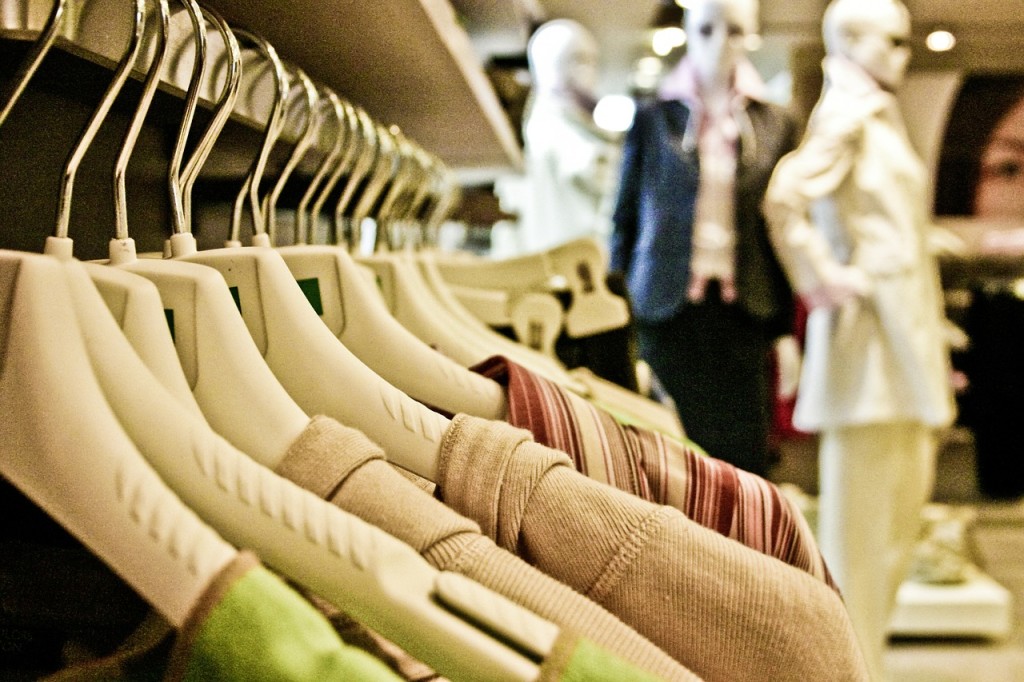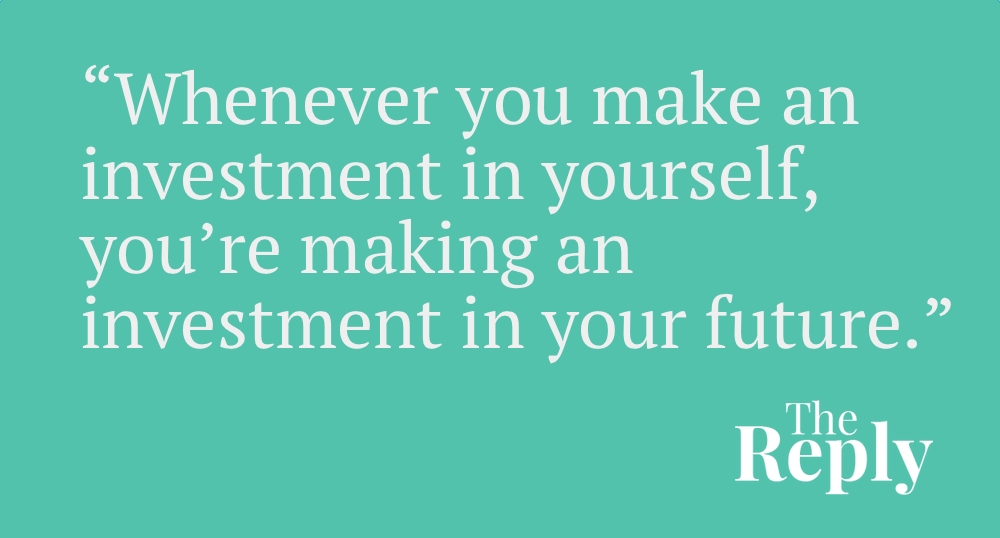Millennials learn the importance of saving at a young age. But why don’t we teach the value of spending?
You know that guilty feeling you get in the pit of your stomach when you spend money?
I’m not talking about your daily latte from Starbucks (although, we all know that shit adds up).
No, I’m talking about the deposit you just put towards your upcoming trip, and the stack of textbooks you’re still paying for on your credit card (even though you only opened about half of them). I’m talking about the 10km race you registered for this summer, and the cooking class you finally decided to take.
You work hard for your money. Sometimes, spending it is even harder.
Spending Versus Saving
Nearly every lesson we learn about money is focused on how we spend and how we save. From a young age, we are taught one habit is good and the other is bad. We know saving money is the ultimate goal. The more we save, the bigger cushion we have and the more secure we are.
In contrast, spending is dangerous. Credit cards are evil. Large purchases make us feel guilty – that money is better off locked up in a vault, where it could reap the benefits of compound interest for decades.
But is this actually the case?
For the last three months, I’ve been extremely focused on cutting back my spending. After making a big career change, I no longer have the security of a steady paycheck to fall back on. This meant making some changes to my budget.
Nearly every lesson we learn about money is focused on how we spend and how we save.
It started with small modifications, such as switching cable providers and packing lunches everyday. Then there were some more significant alterations. My husband and I decided to avoid all retail shopping in January, a pursuit that has completely transformed our spending habits (goodbye impulse purchases). In February, we steered clear of eating out at restaurants. And we’ve managed to carry most of these habits through to March.
(If you’re a regular reader of The Reply you might have noticed we did go on a vacation earlier this month, but we had saved up months beforehand so we could pay for the trip in cash).

Would you consider a retail shopping ban?
For the last three months, I’ve been collecting every single receipt and plugging the numbers into an app on my iPhone. At the end of each week, I add everything up in an excel spreadsheet. It has made me extremely conscious of where our money is going each month – and I guess you could say I’ve become kind of obsessed with our spending habits.
I’ve approached our income the same way. Every dollar we bring in is added to the spreadsheet. My husband and I are constantly looking for ways to diversify our income. We’ve been working towards a massive spring purge at home. So far we’ve donated 12 garbage bags of belongings. Another five bags have been thrown in the trash. And we’ve been selling the items that remain in top condition online.
We’ve also set some significant savings goals for the months and years ahead, including contributions to our TFSAs and RRSPs, as well as stashing away money for larger purchases, and maybe even another small trip this year if we can squeeze it in.
Our fundamental goal has been to save more, spend less.
A Closer Look at “Spending Guilt”
My revised money habits have already resulted in some small wins. Last weekend when I was cleaning out old makeup I had a sudden urge to buy a cosmetics organizer. It was exactly what I needed to simplify my beauty routine.
I guess you could say I’ve become kind of obsessed with our spending habits.
I immediately turned to Amazon, searching for the best buy. I found the perfect one on sale, with free shipping. I quickly mentioned the purchase to my husband, as my mouse hovered over the “Add to Cart” button.
“Do you really need it right this minute?” He asked. “Maybe wait until the end of the week, and see what we have left over in our budget.”
I couldn’t argue with that. Disappointed, I returned to my task. There was still one bathroom cupboard left to tackle. And guess what I found stashed in the very back? An old makeup organizer I completely forgot I owned. Imagine the guilt I would have felt, after spending $26.51 on a brand new organizer and coming across a perfectly usable unit of my own just moments later?
But is “spending guilt” always right?
For weeks I had been eyeing this online course I wanted to take to improve my freelance writing business. It was being offered by one of my all-time favourite marketing mavericks and writers. I knew the value was there, but the price tag still put knots in my stomach – it was $299 (US).
I decided I would pass this time around, and check in for another course a few months from now. Over dinner that night, I casually mentioned it to my husband. He knew one of my main goals in making the transition to work for myself was to continue to build new skills. He understood the value of investing in myself, even when I couldn’t see it.
After reading the course details over, he convinced me to register. “It’s worth it,” he told me. “You’re worth it.”
Of course, he’s right. Why did I have such a hard time seeing that for myself?

Investing in Yourself is an Investment in Your Future
The next time you feel guilty about taking a class, registering for a race, or investing in something that will improve your life, take a moment to remind yourself: you are worth it. Your brain may try to convince you to stash that money away instead, just think of the compound returns. But whenever you make an investment in yourself – to learn something new, build new skills, gain new experiences – you’re making an investment in your future.
“[Y]oung professionals need to invest in themselves,” writes Eric Roberge in a recent TIME article. “The notion that the stock market will set you free (in retirement) is only half right. It does not take into account myriad possibilities, one of which is that investing in yourself early in your career may be a better choice.”
Take a moment to remind yourself: you are worth it.
Of course, this is not the same as justifying a lavish meal at an expensive restaurant, or swiping your credit card to pay for a vacation you can’t afford. And I’m definitely not suggesting you give up your retirement savings goals.
But I do think it’s time we rethink the way we feel and talk about money. Instead of looking at your choices to spend or save as good or bad, focus on the outcomes of your actions. After all, money is a tool, and tools are meant to be used.
We all know every dollar you save is an investment in your future – but so is the money you spend on improving your life.
How do your saving or spending habits influence your daily life? Do you have any best practices to share? Let us know in the comments below.

